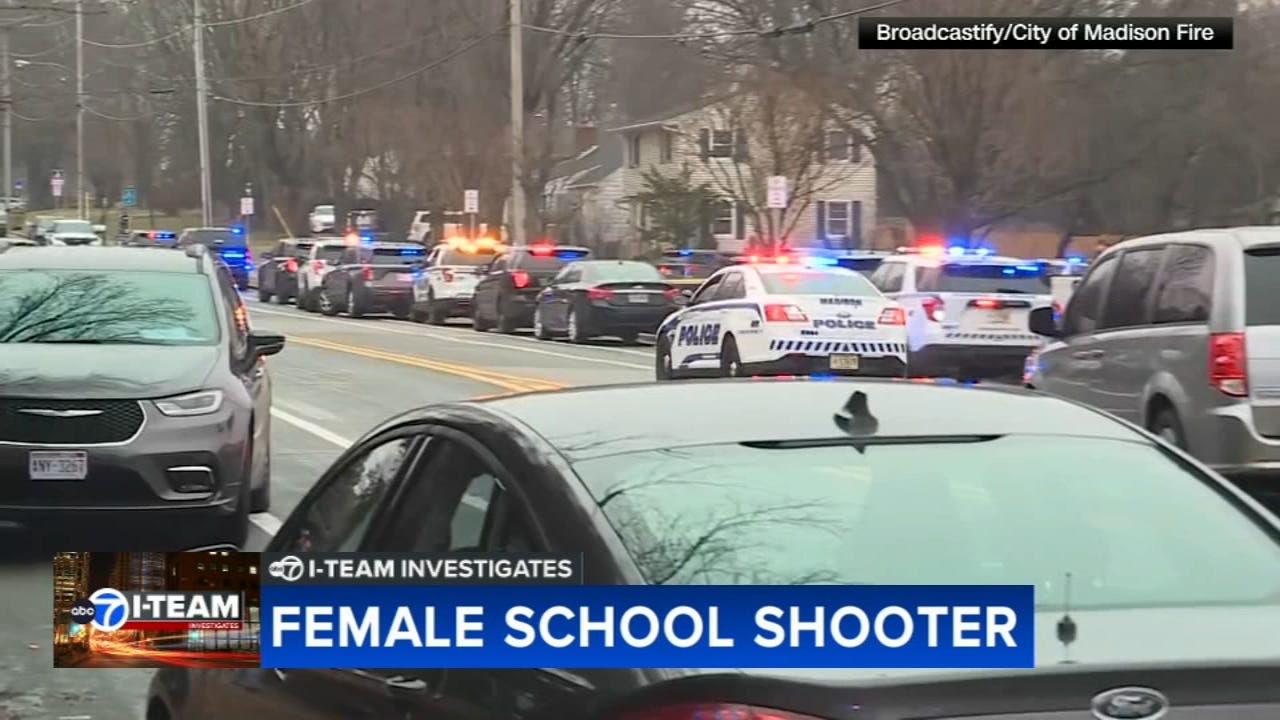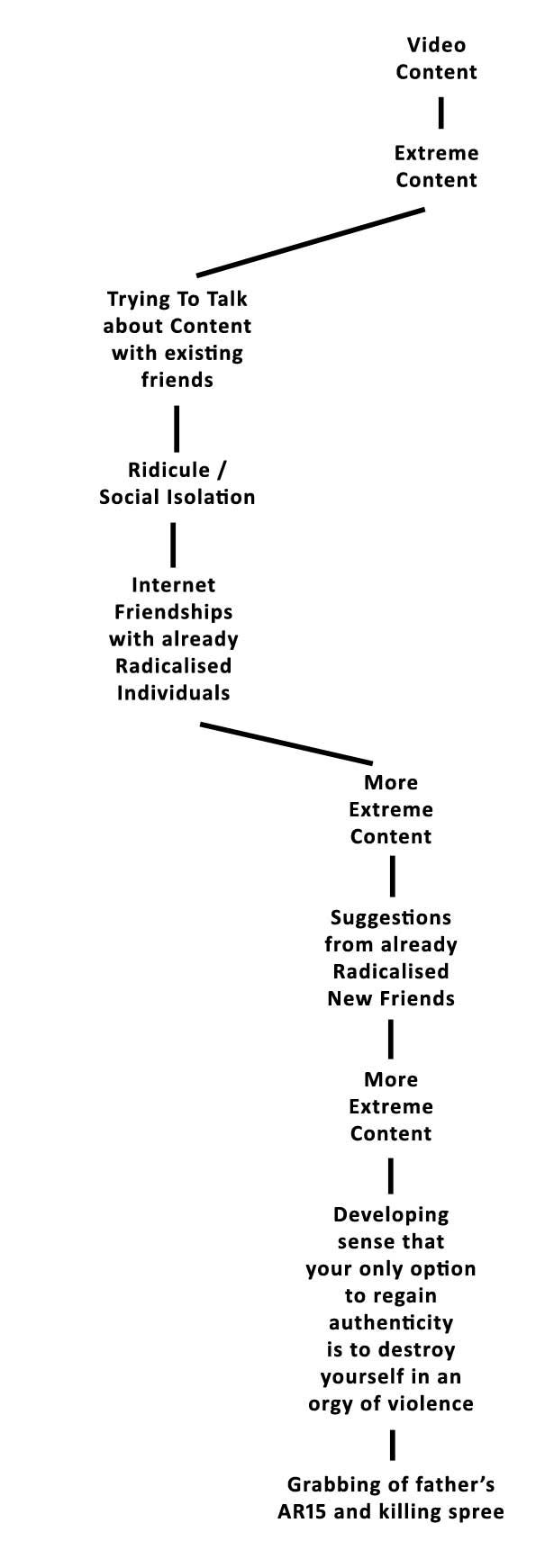Spontaneous radicalisation - the rapid turning of a seemingly healthy person into a violent extremist - is a thing now. Over the last weeks, the cases of both CEO assassin, Luigi Mangione and school-shooter, Natalie “Samantha” Rupnow have filled the US media headlines.
Whilst we’ve known about a potential tie-in to social media algorithms for a while, I think that now the connection and the underlying psychological process are becoming much clearer. Let’s take a look.
Video sharing platforms like YouTube, TikTok or Instagram rely on advertising to make money for their owners - Google, ByteDance or Meta. To get the user to watch advert videos, they do whatever they can to keep your attention on the platform. The most effective strategy thus found to achieve this is to automatically feed you with more content that the algorithm finds to be similar to what you have been watching, but typically of a more compelling nature.
The “compelling” aspect is invariably that the content intimates that the reason you are not having the kind of life you dream of is because of some activity taking place, that you were previously unaware of, and which in essence is holding you down or holding you back, keeping you enslaved to other people’s agendas.
Perhaps people of a different skin colour are to blame. Perhaps an elite cabal of the ultra-rich. Perhaps believers in an alternative religion. Perhaps aliens or occult forces.
Now, imagine yourself as say a person aged 14-19, filled with teenage hormones driving your need for both identity and social acceptance through the roof.
Being fed ever-more compelling content of the above nature sends you into a “rabbit hole.” You soon find yourself immersed in a world so at odds with your existing understanding of how society functions that your sense of what is real starts to become lost.
You attempt to talk about what you’re watching online with your existing friends. But you find them uninterested, sceptical and they begin treating you with ridicule. You can sense them laughing at you behind your back. The sense of social isolation you experience, reinforced by the teenage hormones flooding your system, drives you into a black hole of low self-worth. Your only perceivable option is to dive back into the online rabbit hole with renewed vigour. You are now immersed in radical content for increasing numbers of hours daily. You begin to acquire online friends who are into the same material, who believe the same forces are holding them back, and who feed you with still more videos.
You begin to hate everyone and everything that you perceive as normal - your school friends who have rejected you, the society that simply wants you to conform. You see all of it as holding you in a place of low self-worth when, actually, you are the one, true individual. It feels like it’s all making sense now. You are the real star. In your inner world, you increasingly regard other people as either worthless or malign. You begin to idolise lone extremists and come to regard them as the only authentic individuals in a corrupt and malign universe.
One morning, you emerge from the rabbit hole, grab your father’s AR-15 and march into school. You go on a killing spree before finally turning the gun upon yourself. The community, in shock, mourns and no one understands how it could happen.
This process is entirely machine-like and could be represented something like this:
What I personally find concerning about the above scenario is that, actually, it is no one’s fault. The social media platforms are merely following a strategy proven to increase their revenue and thus maintain a market edge. The content that most engages people will inevitably be both extreme and suggesting external blame for the perceived inadequacies of one’s life. That is simply how our psychology functions at a base level.
This spontaneous radicalisation machine that has manifested in our culture cannot usefully be blamed on any of the forces that surround us. It is selecting for certain niched psychological traits and amplifying them to the point where they lead to violent extremism. People who in any way struggle to fit in with life as a teenager are at risk. Merely one psychological trigger could put someone into the machine, from where they will emerge, with guns blazing and screams, a few months later.
I don’t believe that there are any easy solutions here. And I don’t believe that this phenomenon can be understood without recourse to higher-dimensional models of how life might be manifesting, if indeed it can be understood at all. It may get worse, which would at least lead to more thinkers trying to dig into this thing and come to grips with it.



A big factor is the shitty SSRIs and ADD drugs they put kids on.
I've known that SSRIs are problematic for at least a decade. There's safer alternatives that work better like dextromethorphan (look up the drug auvelity).
But no, the morons still prescribe SSRIs which do have issues with suicidal and violent ideation.
I blame the moronic psychiatrists and big pharma....
I think this is accurate Dev. Also the lack of a sense of a future must be huge for young people. In the 60's there was the possibility of nuclear war but MAD kept a sort of stability which at least allowed us to imagine a future of holidays on the Moon by 2000. There are not many people now who are really optimistic about the future. In many ways, I am glad I am not 20 again.